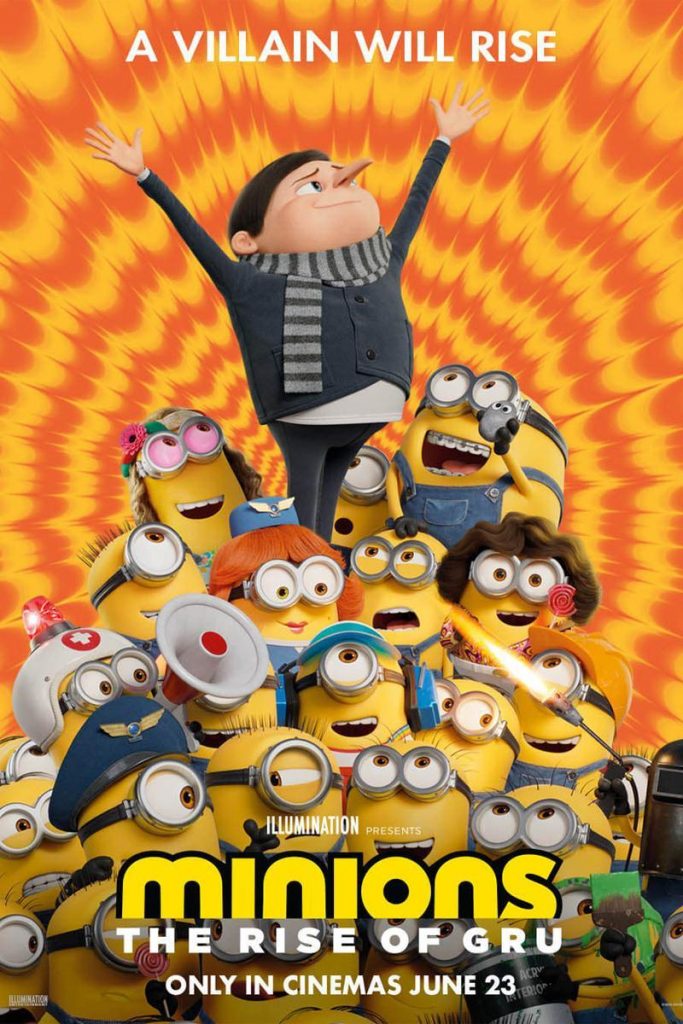Three speeches in the film reveal the hidden heart of a nation. How can a family scandal be passed on.
1. gratitude
The opening scene, Harmony in America, is praised by all. Luz, a black boy, gives a speech as a representative of the best students. The theme – A grateful heart, thank you. I want all students to stand up; to take this opportunity to thank you; to thank our teachers our parents; to thank you for helping us to become the people we want to be.
The audience was well groomed and spoke in a friendly manner. A perfectly official speech was followed by a harmless bit: I hope you enjoy this moment; because tomorrow we’ll be annoying dead kids.
Luce was sent to the lectern as a role model. Because of his origins, he is “politically correct” himself. Until the age of ten, he grew up in the war zone of Eritrea, Africa. He was then adopted by a white couple and brought up in America. Luz is living proof of the American dream: that America is capable of repairing wounds and providing a future. But the speech is positive enough, melodramatic enough, and elite enough. But it was also standard, clichéd and tasteless. Does it make you wonder if all that has been erased from the past really means nothing? Of course not. Beneath the glossy surface, shades of the unspoken gradually shine through. The occasion, an essay. The essay asked for an essay in the voice of a historical figure. Luce writes quite well. The only problem is that he writes about a Pan-African revolutionary. He believed that violence was necessary to free the colonised from the colonisers.
Immediately, Mr Wilson was on the alert, summoning not only parents but also searching Luce’s locker without permission, and “as expected” finding a bag of offensive and illegal fireworks.
In an instant, Luce, a top student, is a potential rioter. This is Round 1, and the conflict between the teacher and Luce is about to escalate. Round 2 – The teacher’s home is invaded and vandalised, with insults written on it, and the blame is placed on Luce. Round 3 – The teacher accuses Luce of intimidating her because he mentioned his favourite day, Independence Day, during the conversation. Final Round – The teacher and the headmaster met with Luce and the parents. At the meeting, she severely accuses Luce of vandalism and accuses him of sexually assaulting a female classmate. But, just then, Luce produced an alibi. The female student who had promised to testify also left without saying goodbye. The teacher was defeated and Luce won. However, the most interesting point is this – Wilson is not a blasé white man, but a black woman. This makes one constantly wonder: why is it so hard for a black man to be black? Loos thus sets itself apart from films like Escape from Desperado, which traditionally react to racial tensions. It is not a simple, white story of oppression and discrimination against black people. But it says much more than simple “oppression” and “discrimination”. The first speech was a failure. It lacked a basis of trust, not just between whites and blacks, but more insidiously between blacks and blacks. The latter was even more alarming.
2. Justification
Under the unwarranted suspicion and pressure exerted by his divisional leader, Luce prepared his second speech. This time, there was no audience. At the rehearsal, in front of a room full of empty seats, he burst into tears with anger in his chest. If Luce is a “victim”, then his speech must be an accusation? Must the aim be to sensationalise and move the ‘audience’? No, and here is where the film gets paradoxical. The figures of the victim and the perpetrator are ambiguously overlapping. In the opening scene, someone is filmed putting explosives into Luce’s locker. But only the hands are filmed, not the face. By the end, no one knows who this person is. Later, the camera twice captures Luce messaging someone by the name, Runner D. The identity of this D, too, is never made clear. There was even a line about an Asian girlfriend. The questions of whether she was sexually assaulted, and what role Luce played in it, are also never answered. These gaps stack up and gradually allow for a whole new possibility – that it wasn’t the teacher who wronged the student. It was Luce who was behind it. Acting never broke the story, and never arranged for Luce to do any confessions. But there are just a few hints that tempt you to think and keep you guessing.
For example, the teacher has a sister who has just been discharged from a mental hospital , and comes to her school to cause a scandal. When the scandal comes together, the town is full of talk. On the surface, the whole thing seems to have nothing to do with Luce, except for his chance encounter with the teacher and her sister in the supermarket.
But after a second viewing, Sir found that there were several interesting details buried before and after the incident: after confronting his parents and knowing that the teacher was suspecting him, Luce opened FaceBook and saw the only name in the teacher’s family and friends section – Rose Marie (the teacher’s sister). Before approaching the teacher to talk, he overheard her talking to her sister and mentioning her medical history.
The teacher was abruptly called away from class on the day her sister went crazy. The last student to enter the classroom late for that session was Luce. Mixed in with everyday events, these details are unremarkable. But taken together, they make one possibility emerge – that Luce used the teacher’s family connections to spur her sister to come to school and cause trouble. To add to the intrigue, Luce played a small video recording of the scene to her own parents. The father immediately said, “This teacher is a cold-blooded psychopath, I shouldn’t have suspected you before. The father walked away and Luce grinned with big white teeth. It was the smile of a child who has been affirmed by his parents. But it was also like the smile of triumph after planning a battle.
Note that there is a seemingly cumbersome white space in this scene – the father walks away and the mini-video is not over yet. The camera records Luce leaving the hall and walking into the hallway. He has a stony expression and a slight frown on his face, seemingly preoccupied, very different from his classmates who are excited to see the action. Watching this scene, Amy, his mother, was silent. She did not surrender her trust as her husband had done. The furrowed brow and drooping corners of her mouth expressed more than sadness.
It was more than confusion. She begins to lose track of the truth, to lose sight of the son she has “saved” and worked so hard to bring up. The filmologist André Bazin once said. Abbreviation is the absence of reality, or more precisely, the gap in our perception of reality. For perception by its very nature has limits.
With so many ambiguities and allusions, gaps and white spaces, Loos does not just want to reverse the “black-on-black”, to turn the accusation from the black teacher to the student. It’s not as simple as a sad second speech. It’s about muddying the waters so that you can see that everyone is in it. No one is capable of seeing this reality yet.
03. irony
The provocative speaker is able to turn the same proposition on its head. For example, the title given to Luce is, gratitude. He did understand it that way the first time. But after going through the before and after of the apologetics showcase, he is like Deacon Wong in The Odd Couple. Ask yourself, is this question really about gratitude? No. It’s about division. Behind a part of grateful black people there must be a part of the same kind who drink silently, and so on down the line. All are black, but they are black in different ways.
The first type of black: Deschamps.
Black to the core. He was a black classmate of Luce’s. He was stripped of his scholarship and kicked off the varsity team after a teacher found him in possession of drugs. Look at the conversation between Luce and Deschamps. Deschamps asks, Why did they choose you at the expense of me? Then answers himself: it’s because they want you to win; otherwise all the good image they’ve created in you you living sign; would be useless.
A team must keep at least one Obama, right? The crude, poor, drug-addicted Deschamps thinks that he is the dregs, the muck, in order to bring out the American flower like Luz. The latter is “good”, “white” and the target is Obama.
The second type of black man: Mr Wilson.
The self-proclaimed elite white. She is a defender of mainstream values, and she assigns essays to get her students to “think outside the box”. But in fact, she is the most confined of all. In class, she lectures on the history of racism, and both white and black students are distracted. She turned a blind eye to the white girls but reprimanded the black boys: remember to her; this knowledge may be optional but to you; it could be a matter of life and death; so you better take this information seriously; because you will definitely need it later Mr Meeks.
Before treating her own students as equals, she was the first to label them as races, prefiguring a vitriolic race war. More typical, was her treatment of her own sister Rose. How did Wilson react when her ailing sister came to school to cause trouble, stripped in full view and was eventually tasered away? She kept a safe distance the whole time. No matter how far things went, she never came forward to physically touch her. As if afraid that the madness would be contagious.
Hands raised in front of her chest. Both to stop and to resist. Resistance to the farce, resistance to her own unhinged sister. Resistance to this madness of “blackness”. As her sister makes clear, she longs to be cut off from such blood. I am your black sister; I have the same blood as you; we are different from these white people.
Calm down, relax, calm down, she said repeatedly and mechanically. Ignoring the fact that her frenzied sister had long since lost her understanding. In fact, the words were more for herself, for the flawlessly calm and self-possessed personal image she had worked so hard to create. It was already in jeopardy. She knew that the next person to be ostracised from the team could be herself.
The third black man: Luce.
It is the black spots of blood that glow in the tragic white, the revenge of the rebel. He has long since realised that his self-worth comes from a “use” of mainstream society. Luz: I’m a living symbol of the school, a black kid overcoming a tragic past, a living advertisement for the American dream, that kind of nonsense; is there a difference between punishing someone for living the stereotypical life and rewarding him for living a different life? FATHER: The latter has benefits; Luz: What do you mean by benefits; in my opinion, it’s just more responsibility for nothing
The black adopted son stops firing “grateful hearts” and soberly dissects the hypocrisy behind the rescue. It is simply “ungrateful”. His white father can’t help but be furious and turn to his wife to complain: our friends don’t understand why we don’t just have a child of our own, so while they’re away from us, doing what normal people do, we work our asses off to create a new life for him at the expense of our own, so the act of pretending this decision doesn’t cost us anything! It’s ridiculous, – I’m not pretending – you obviously are Amy
But in fact the more he complained, the more it proved that Luce’s perception was correct. This white couple, willing to invest ten years of their time and energy to save a young African refugee boy they had never met. But when it turns out that the story will not turn out as they had hoped, into a glorious example of the American dream and the goodness of humanity, their patience and love are instantly drained and disintegrate into resentment and remorse. So Luce’s layout, for Wilson’s revenge, is really a rebellion against those heavy value judgements imposed on him. –He doesn’t want to be one of the “Ten Most Dutiful Children in America” anymore. He doesn’t want to try his best to be a model of morality. He didn’t want to be evaluated and monitored for all his “abnormal behaviour”. But the most thought-provoking part of the story is the ending of Luce.
It’s not a cool ending. For Mr Wilson was never the one who started the battle. When Wilson was removed from her job, he came to visit her at home and questioned “why do you have to demand perfection from everyone to be recognised”. Wilson finally crushed him: this is our life, my son, and it’s not just about you and it’s not just about me, America has imprisoned you in a box, and it’s cramped and dirty and you can’t move, like it or not. We’re all on the same string, but you’re stuck in it, and there’s only a little light to shine into it.
The teacher sees things, or is more sophisticated than the student. Luce thought that it was the teacher, or more to the point, the school, that he was rebelling against. But Wilson points out, straight away, the real man behind the scenes – the whole of America. At this point, you should understand why “Luce” has been so often underwhelming, despite its strong cast and excellent word-of-mouth. It’s because it takes a risk. It is not so much an “American story” as it is an “anti-American story”. Behind the warmth of the eulogy, it points to hypocrisy. Behind the boundless freedom, it sees bondage. Behind the generosity of giving, it shows calculating, post-mortem reckoning. When Luce becomes an example of success, the school leader laments: who knows how he can be cloned?
And when he shows signs of being wrong, the first reaction of the teachers is: his image is exceptionally important to this school. He must not screw up.
He was first and foremost a cloned prototype, a school propaganda film. The only thing he wasn’t was a real person. The “box”, as Wilson calls it, is everywhere. And it is wrapped in love and embellished with goodness. The most “successful” and “brilliant” third speech begins. The “enemy” Wilson had been driven out and Luce was once again on stage, reading from the same script as in the rehearsal. Only this time, his emotions were rich and restrained, the corners of his mouth turned up in mockery, and a little twinkle in his eye expressed his pain and resentment: I came to America and entered this school. When I first met my mother she couldn’t even pronounce my name correctly, she tried so many times to pronounce each syllable with the right accent, and failed, so my father suggested that I be renamed, and they chose the name “Luz” for light.
How ironic. The price of finding yourself is losing yourself. The price of getting a new name that is easy to pronounce is losing your real name. Until the end, we don’t know what his original name was. Perhaps it was not remembered by anyone at all. All that remains is the name given to him, “Luce”, a symbol of light. To get out of the “American Dream” charade, in the larger proposition of life: not everyone has the opportunity to be on stage, but everyone is a speaker in their own predicament: you must remember a midnight dream, a moment of tossing and turning, an inner monologue: who is this person in the mirror? Me? Am I happy, am I miserable? What do I want? The best speech is the one you give to yourself, true and brutal.













